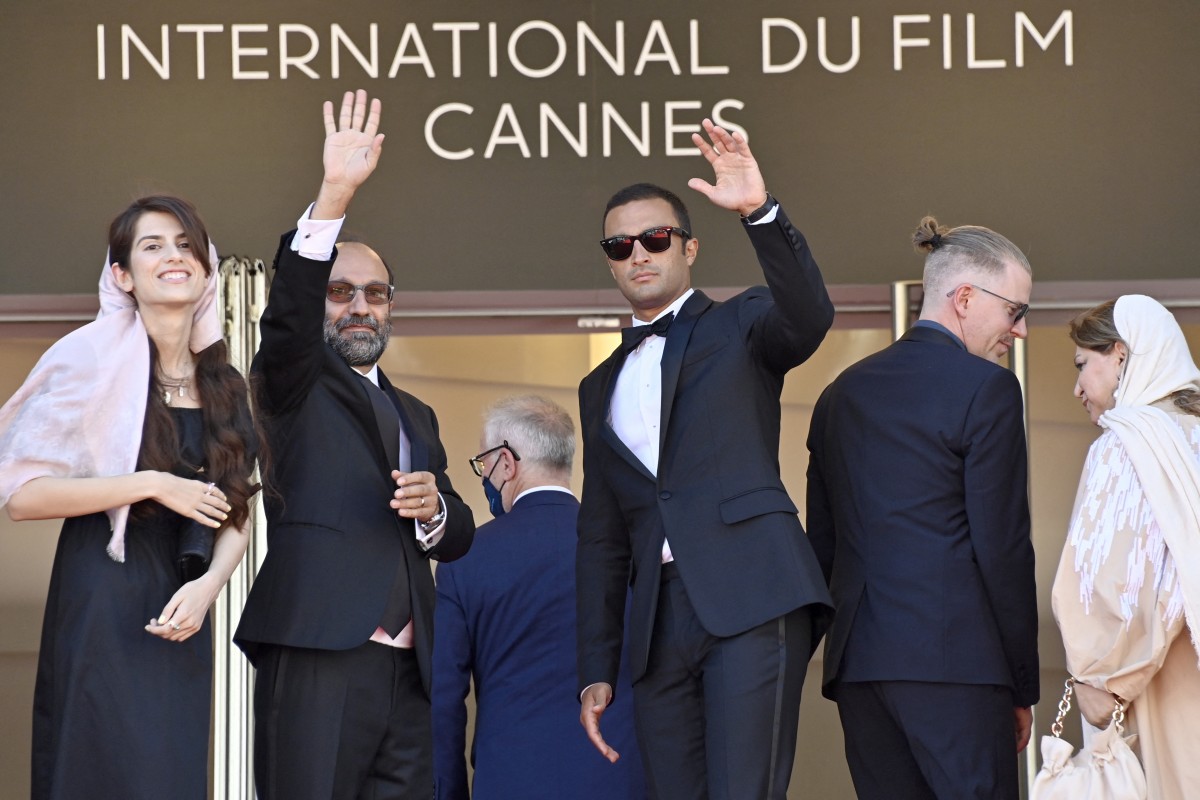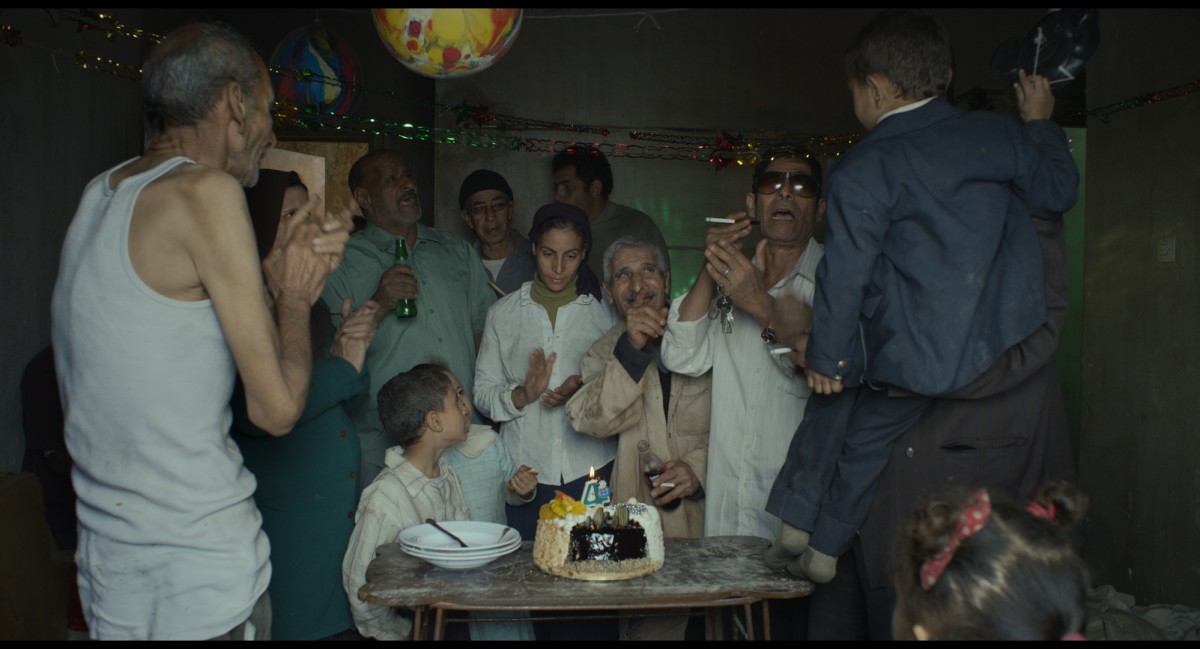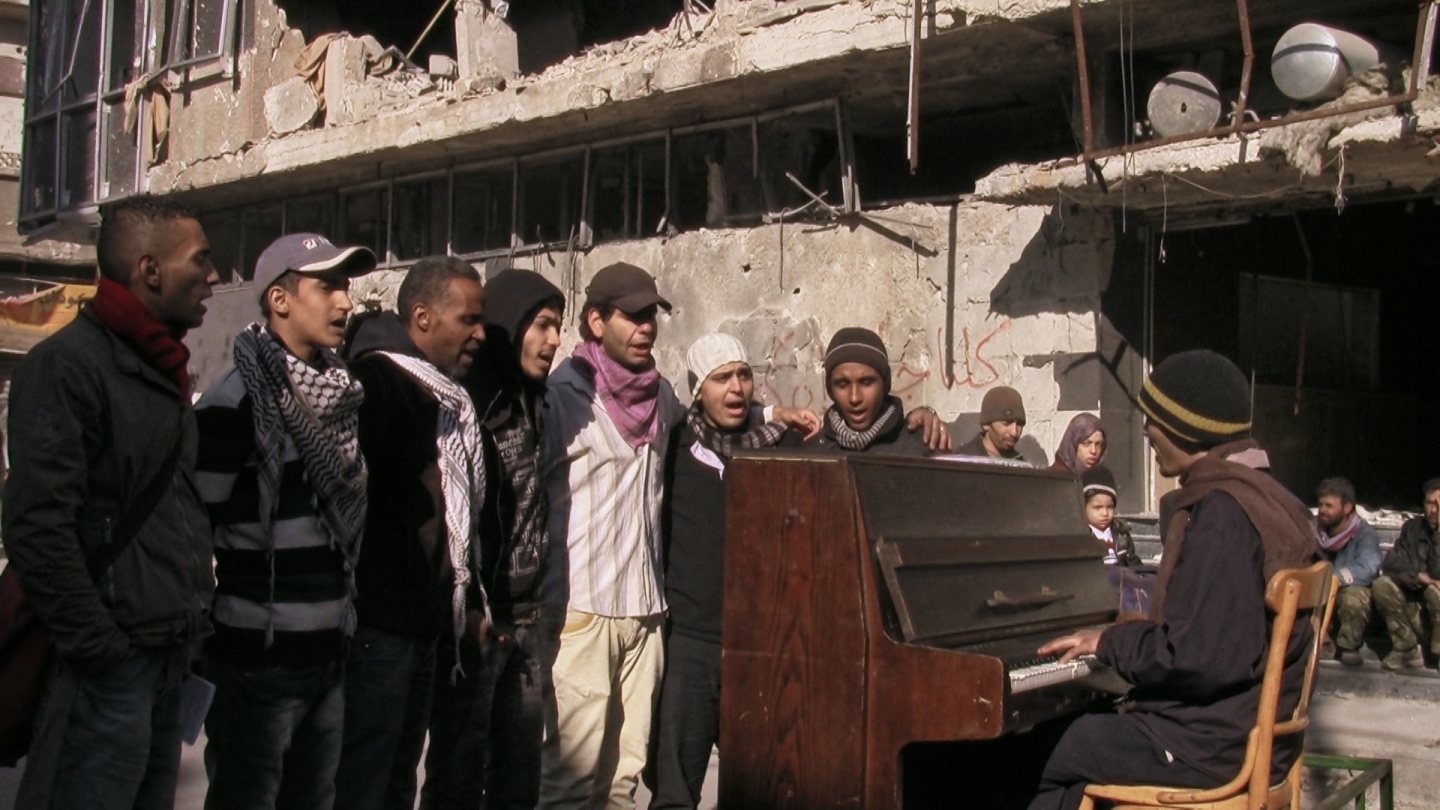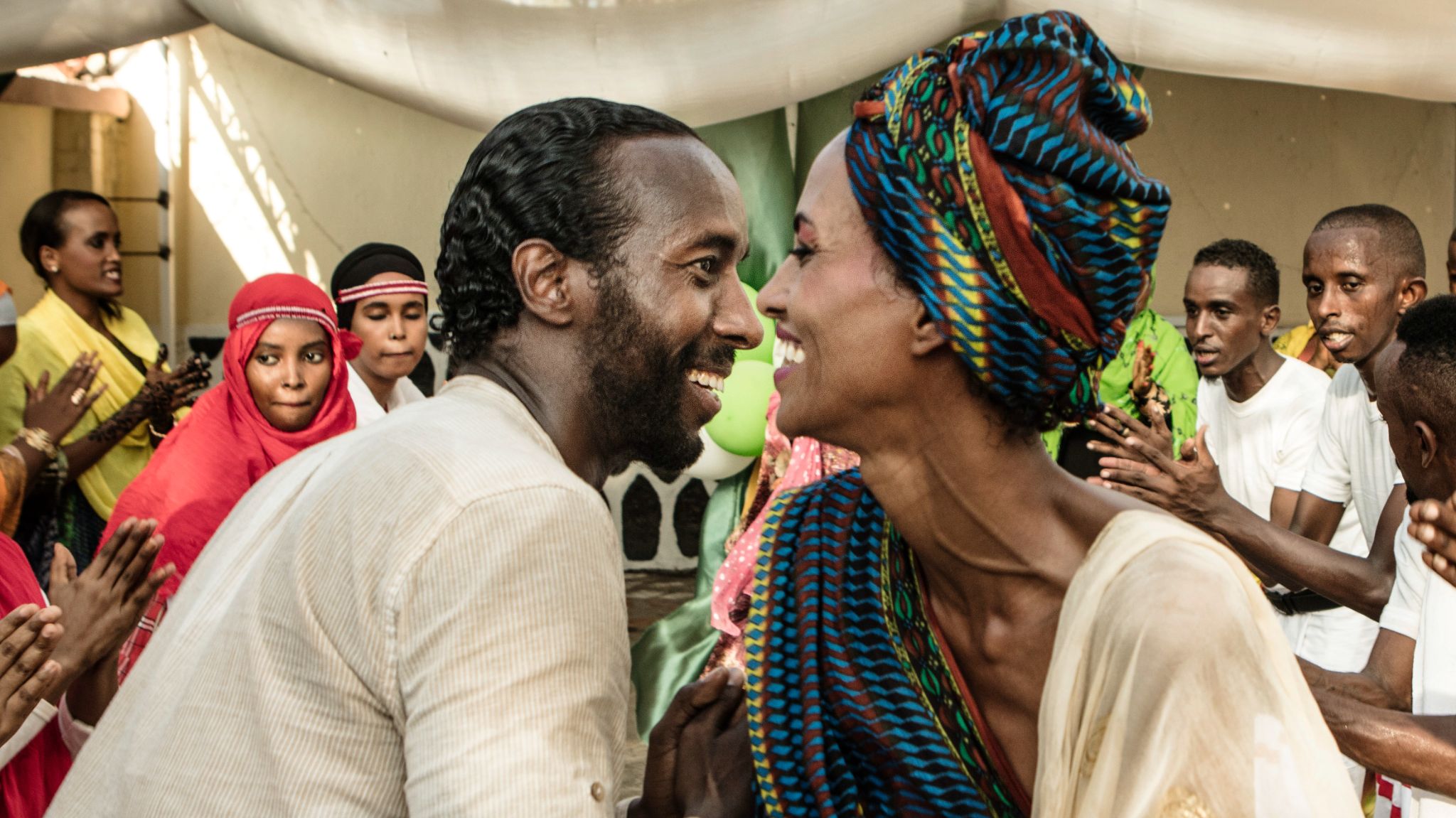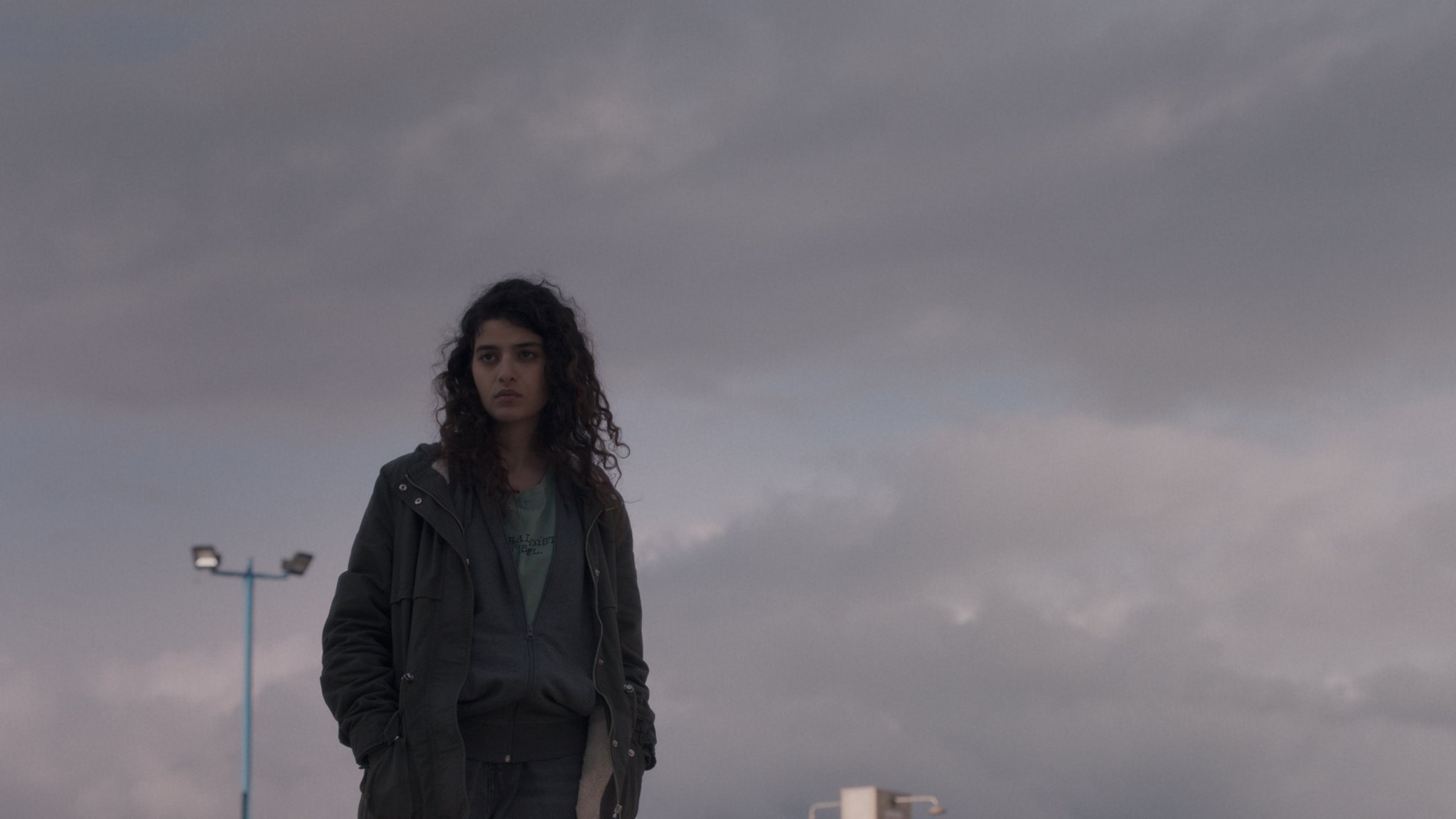Cannes 2021: Middle Eastern films make their mark

“Festival-goers have been in France for 10 days to do the quarantine, journalists have taken their precautions,” a defiant Thierry Fremaux, director of the Cannes Film Festival, told the press last week. “It's all very moving. The cinema world is coming back together.”
Fremaux’s statement is somewhat overblown. On the one hand, for the unfortunate journalists arriving from outside of Europe’s green zone list, there was nothing remotely moving in quarantining for a week before the festival kicked off on 6 July. On the other, the sense of solidarity Fremaux referred to is anything but believable.
Having spent 14 months indoors behind computer screens, critics and film professionals were salivating to go back to the movies, no matter what it took. The endless requirements demanded of Cannes' guests this year include Covid-19 tests every 48 hours for the non-fully vaccinated, ticket reservation via the festival website that was copiously crashing in the first couple of days, and various other contradictory stipulations - not to mention the usual draining security checks.
The 73rd Cannes Film Festival is certainly no walk in the park, but a mouth-watering selection - including yet another strong showing from the Middle East - and the potential for a busy market have provided enough motivation for people to endure the agony of what many journalists have described as the most difficult festival they’ve ever experienced.
Streaming services continue to dominate
This world we’re returning to, however, is anything but buoyant - even if Cannes may appear to be. The rising force of streaming platforms is looming large not just over Cannes, but the global film industry. Fremaux’s now-familiar annual attack on Netflix (he claimed that the American streamer has “yet to discover a great film director”) now feels like a quixotic swipe against an unconquerable culture growing in dominance with every passing month.
Netflix is no longer the only player in the expansive streaming landscape. Mubi, the once niche service dedicated mostly to arthouse films and world classics, has hugely expanded its operations, developing a distribution arm and dabbling with production.
The Criterion Channel - the streaming service of the highly popular US home video distribution label dedicated to American and foreign classics - is steadily growing in influence and is an indispensable companion to Mubi. Several other streaming platforms have recently sprung up in Europe, the US and around the rest of the globe.
Middle Eastern cinema is no stranger to evolutions, constantly dealing with fluctuations in funding caused by an unstable political landscape
The move to home distribution means that arthouse and foreign films are no longer a unique attraction of film festivals. It’s telling that the opening film, Leos Carax’s French musical drama Annette starring Adam Driver and Marion Cotillard, is being released in US cinemas (on 6 August) before landing on streaming platforms a week later.
Festivals remain instrumental in promoting the best of world film, but with cinema distribution shrinking the world over, the new role of festivals now appears to be as fodder for streaming platforms, rather than being the cultural influencers they once were.
This year's Cannes festival might thus be regarded as a transitory edition - a bridge between the old film world and an uncertain future; a future where Covid-19 may still be mutating.
And so, what of this year's offerings at Cannes from the Middle East? Well, Middle Eastern cinema is certainly no stranger to evolution and change, constantly dealing with fluctuations in funding caused by an unstable political landscape.
The fate of these films will be contingent not only on the stuttering movie market, but on what happens next in the global pandemic.
There’s one unquestionable reality, however: for the average movie-goer, a streaming platform is where they will probably end up watching them, not on the big screen.
Strong Middle Eastern selection
From the Middle East, an eclectic selection is tackling hot-button political issues in refreshingly different forms.
Topping the list is two-time Iranian Oscar-winner Asghar Farhadi (A Separation, The Salesman), with his competition entry A Hero, another potboiler morality tale about an imprisoned man who embarks on a 48-hour quest to convince his creditors to withdraw their case against him. The film has already been acquired by Amazon for a US release.
Joining him in competition is Moroccan Cannes regular Nabil Ayouch (Ali Zaoua, Much Loved), with Casablanca Beats, an inspirational drama about a former rapper who takes charge of a cultural centre in a rundown neighbourhood in the titular city and changes the fate of its young members through hip-hop. This is Ayouch’s first competition contender and the first Moroccan entry to compete for the Palme d’Or since 1962’s Ames et Rythmes by Abdelaziz Ramdani.
The Un Certain Regard section sees the return of Turkish Berlin Golden Bear winner Semih Kaplanoglu (Honey) with Commitment Hasan, a soul-searching treatise revolving around a farmer whose imminent pilgrimage impels him to examine his past.
And showing in the Special Screenings section, Brazilian/Algerian director Karim Ainouz visits Algeria for the first time as he ventures to learn about the land of the father he never met, in the intimate documentary Mariner of the Mountains.
In the Critics’ Week sidebar, Egyptian director Omar El Zohairy premieres his much-anticipated debut Feathers, a dark, fantastical comedy about the pains a woman endures to bring her husband back to life after he’s accidentally turned into a… chicken.
Directors’ Fortnight, meanwhile, hosts Iraqi/Italian Haider Rashid’s Europa, a visceral survival tale of an illegal Iraqi immigrant trying to escape the clutches of the Bulgarian police on the border between Turkey and Bulgaria. Also showing in Directors’ Fortnight is Panah Panahi’s debut feature, Hit the Road, a road movie that sees the four members of a middle-class family embarking on a trip to bid farewell to the older son who’s preparing to leave Iran.
Lastly, Israel figures heavily in this year’s selection, with a host of films scattered across different sections of the festival. Highlights include recent Berlin Golden Bear winner Nadav Lapid’s fourth feature Ahed's Knee, an 8 1/2-like self-reflexive story of a successful filmmaker forced to deal with past traumas while screening his latest movie in the middle of the desert.
Waltz with Bashir director Ari Folman, meanwhile, makes his comeback after an eight-year hiatus with Where is Anne Frank?, an inventive animation retelling of the story of the young holocaust victim.
Most controversial of the lot is Eran Kolirin’s Let There Be Morning, a black comedy about an Israel-residing Palestinian who finds himself trapped while visiting his hometown when a sudden siege takes place. Based on a novel by Palestinian writer Sayed Kashua and featuring a mostly Palestinian cast, the film’s Arab crew made headlines last week when they announced they would be boycotting Cannes in protest of its branding as an Israeli production.
Kolirin, the talented pro-Palestine director of The Band’s Visit, expressed his sympathy with the cast, whose act is regarded as a challenge to the legal classification of Palestinian stories produced in Israel (to clarify: the film was funded by Israeli public funds).
As Cannes courses through its second week, we highlight three of the most notable films from the region screening in the festival this year.
Little Palestine (Diary of a Siege)
For more than half a century, the two sq km Yarmouk, on the outskirts of Damascus, was the largest refugee camp for Palestinians outside Palestine, housing more than 100,00 refugees. With the launch of the Syrian war, the camp became a point of contention between the Islamic State (IS) group and the regime of Bashar al-Assad.
Assad's army besieged the camp, trapping its residents inside from 2013 until 2018. Conditions rapidly deteriorated, with electricity suspended, infrastructure torn to the ground and a food crisis which, the end credits state, led to 181 deaths from starvation.
Born and raised in the camp, director Abdullah al-Khateeb has documented the gradual destruction and final perishing of his home in this searing, unflinching feature documentary. The director acts as a guide to the camp while anchoring the devastating passage of time from the point of view of a number of the camp’s inhabitants.
Little Palestine is, by turn, expansive yet intimate; harrowing yet hopeful; occasionally aloof yet intensely moving. The most memorable moments of the film are also the most surreal: the director’s mother feeding a little sulky girl before we learn that she has starved to death; a choir of men singing in front of a piano in a shattered street as gunshots echo from the building above them; an elderly man singing a Palestinian anthem in English before he breaks down in tears.
Khateeb embellishes the proceedings with a distracting voiceover that at times sounds deeply poetic, but is largely obvious and repetitive, and eventually coming off as intrusive. But that’s a minor quibble to a work distinguished for its raw aesthetics and emotional nakedness. Given that the population of the camp has been reduced to 100-200 people after it was evacuated (and after Khateeb fled to Germany), Little Palestine could very well be the last record of a place that may no longer exist.
The Gravedigger’s Wife
On paper, this Finnish-German-French production reads like a disastrous melodramatic piece of African poverty porn. A poor gravedigger in Djibouti city struggles to raise the hefty sum of cash needed to save his ailing wife who needs a kidney transplant, while striving to safeguard his young son from going astray.
Credit is therefore due to Finnish-Somali writer-director Khadar Ayderus Ahmed for stripping from his story any sense of victimisation or manipulative sentimentality. Ahmed’s debut feature is a work of remarkable exactness and precision: a study of the miscarried urban dream and a censure of a hollow modernity forced on a barren land with few prospects.
The Gravedigger’s Wife is imbued with the DNA of melodrama. What Ahmed does brilliantly is to use its basic tropes to augment his political commentary. Deprived of social security and left to fend for his life, the titular character’s line of work transpires as a metaphor for the fragility of existence in a harsh terrain where death is the only certainty.
As the gravedigger makes his way to his home village in one final attempt to gather the surgery fee, the drama intensifies as melodrama gives way to a breakneck thriller where fate is cast in the role of a cruel, mocking force.
The steady and organic shift in temperament results in a picture of remarkable naturalism. The seamless marrying of different genres eliminates any trace of artificiality and tonal dissonance. And while undeniably harsh in its depiction of the plight of its characters, the film is abundant with warmth, humour and charm.
Peeling away the various layers of the film reveals a rich work abundant with bold formal choices and typified by remarkable restraint. Respectful and dignified in its treatment of its protagonists without ever fetishising their poverty, The Gravedigger’s Wife is impressively cynical: what Ahmed ultimately suggests is that without the safety cushion of community or state support, the destiny of every man anywhere becomes absurdly arbitrary.
The Sea Ahead
At the age of 29, director Ely Dagher made history in 2015 when he became the first Lebanese filmmaker to win Cannes’ Palme d'Or for his trance-like animated short Waves 98. Combining fantastical imagery with suggestive depictions of a monstrous Beirut, Waves 98 - one of the finest Middle Eastern shorts of the century - presented a fresh and haunting snapshot of loss and alienation in a decaying, alienating city drifting slowly into oblivion.
Dagher’s debut feature is essentially a fleshing-out of the themes and aesthetics briefly explored in his short, without most of the surrealistic flourishes. Rising ingenue Manal Issa, who was seen earlier this year in Joana Hadjithomas and Khalil Joreige’s Berlinale contender Memory Box, is the enigmatic college dropout Jana who returns to her Beirut hometown after a failed stint in Paris.
Little happens for the rest of the film’s two-hour duration. Jana’s relationship with her parents is more frigid than fractious; her rekindled romance with her ex-flame (Roger Azar) is driven by a desire for companionship rather than love. Whatever happened in Paris that may have impelled her to go back to Beirut is hinted at but never fully explained.
The most revealing element of the film is the characters’ relationship with Beirut. Dagher - one of the most talented filmmakers of his generation - alternates between the suffocatingly cluttered interiors of weddings and parties with spare nocturne exteriors of the abandoned downtown area and its surroundings, a deformed terrain from which the young characters are completely detached.
Dagher conjures up an impressionistic, emotionally subdued portrait of an aimless generation traversing a dying city bound to disappear. The titular sea, which has been veiled by the unpopulated skyscrapers, becomes a symbol for this disappearing Beirut - a nostalgic token often discussed but barely glimpsed.
Similar in concept to Hadjithomas and Joreige’s A Perfect Day (2005), Dagher’s film is set before the 2019 revolution and the subsequent 2020 port explosion, but signs of the city’s impending doom are all here: the latent violence; the unshakable ambience of futility and defeat; the profound longing for an unknown change that never comes. If Hadjithomas and Joreige’s Memory Box is the loving postcard to Beirut of yore, The Sea Ahead is its memento mori.
Primarily driven by mood rather than plot, the film nonetheless suffers from erratic editing, especially where strong dramatic moments are undermined by the characters’ disproportionate lethargic reactions. This and other flaws aside, The Sea Ahead remains one of the most striking Arab debuts of the year: an austere generational statement realised with an uncompromising vision and intellectual rigour that will surely divide audiences and critics in the months ahead.
Middle East Eye propose une couverture et une analyse indépendantes et incomparables du Moyen-Orient, de l’Afrique du Nord et d’autres régions du monde. Pour en savoir plus sur la reprise de ce contenu et les frais qui s’appliquent, veuillez remplir ce formulaire [en anglais]. Pour en savoir plus sur MEE, cliquez ici [en anglais].


